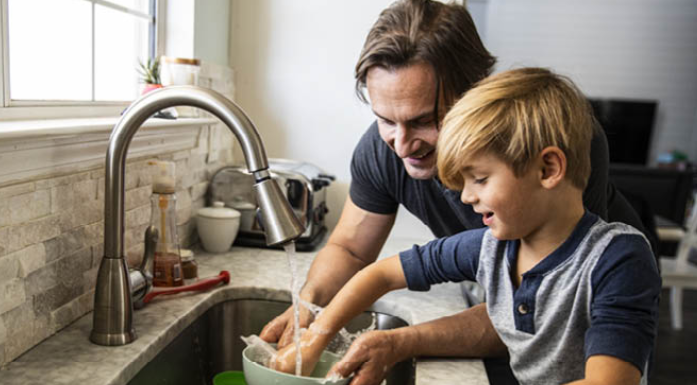Caring for children with Attention Deficit Hyperactivity Disorder (ADHD) can be challenging, but it is also a journey filled with love, patience, and learning. ADHD is a condition that affects a child’s ability to focus, control impulses, and stay organized.
Children with ADHD may have difficulty paying attention, staying still, or following instructions. However, with the right support and understanding, parents and caregivers can help these children thrive. Here are five important tips that can help parents and caregivers better support children with ADHD.
1. Establish a Consistent Routine
One of the best ways to help a child with ADHD is to establish a consistent daily routine. A clear and predictable schedule can make children feel secure and help them know what to expect. This includes setting regular times for waking up, eating meals, doing homework, and going to bed.
When children know what is coming next, it reduces anxiety and helps them stay focused. It is also important to use visual schedules or reminders to keep them on track.
2. Use Positive Reinforcement and Praise
Children with ADHD often receive a lot of criticism because of their impulsive or forgetful behavior. This can hurt their self-esteem. One effective way to care for them is through positive reinforcement. This means noticing and praising their good behavior rather than always focusing on their mistakes.
For example, if they complete their homework without being reminded, you can praise them through Rewards like small treats, extra playtime, or a fun activity can also motivate them to keep trying.
3. Applied Behavior Analysis (ABA) Can Be Helpful
Applied Behavior Analysis (ABA) is a scientific approach that can be very useful for children with ADHD. It involves understanding how behaviors work, what triggers them, and how they can be changed. In ABA, children are taught positive behaviors through step-by-step instructions, practice, and rewards.
For children with ADHD, applied behavior analysis can help them learn important skills like following instructions, staying focused on tasks, and managing their emotions. Parents can work with trained professionals who use ABA techniques or even learn some basic strategies themselves.
4. Consider ADHD Treatment Options
Various ADHD treatment options can help children manage their symptoms. These include medication, therapy, and lifestyle changes. Medication may be recommended by a doctor to help with focus and impulse control.
Behavioral therapy can teach children coping skills, while family therapy can help parents understand their child’s needs better. It is important for parents to talk to their child’s doctor to understand the best ADHD treatment for their child.
5. Create a Calm and Organized Environment
Children with ADHD can become easily distracted, so it is important to create a calm and organized space for them. This means reducing clutter in their study area, using clear labels on storage bins, and keeping distracting objects out of sight.
A quiet, comfortable place to study or do homework can also make it easier for them to focus. In addition to an organized physical space, having clear and simple rules can help children with ADHD understand what is expected of them.
Conclusion
Caring for a child with ADHD requires patience, understanding, and the right strategies. By establishing a consistent routine, using positive reinforcement, exploring applied behavior analysis, considering treatment options, and creating a calm environment, parents can greatly support their child’s growth and happiness.
Remember, every child with ADHD is unique, and with love and support, they can achieve their full potential.

